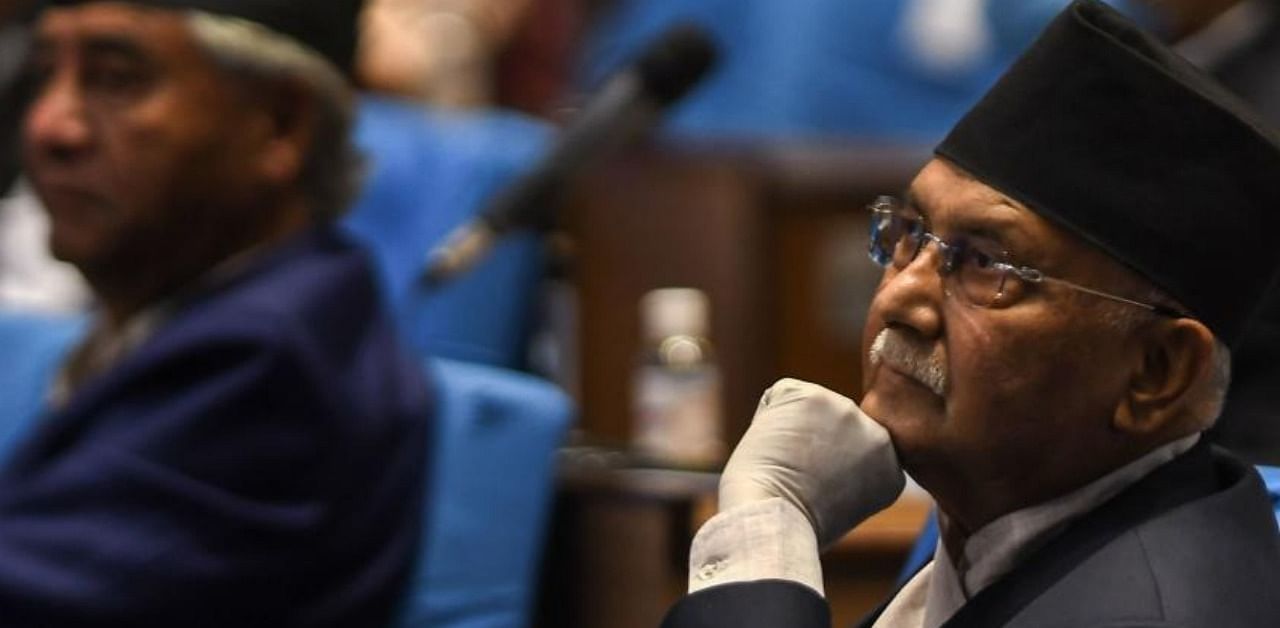
With the rift within the Nepal Communist Party widening, the Chinese Ambassador to Nepal Hou Yanqi held a meeting with the Prime Minister of Nepal, K P Sharma Oli, for about two hours last week.
The two chairmen of the Nepal Communist Party, Pushpa Kamal Dahal and K P Sharma Oli, who are at odds, had even declined to meet each other until Tuesday but on Wednesday, they held the party secretariat meeting. It was a change that came about overnight, and there were clearly multiple factors behind it. Not least the fact that on Tuesday evening, Nepal’s President Bidhya Devi Bhandari held a meeting with Pushpa Kamal Dahal. Around the same time, the Chinese Ambassador met with Prime Minister Oli.
The contents of the two meetings are not clear but it's not hard to guess that they played some role in the two men agreeing to meet each other. Earlier, the rift in the party had widened over convening the party secretariat meeting. Pushpa Kamal Dahal, Madhav Nepal, Jhal Nath Khanal, Bamdev Gautam and Narayan Kaji Shrestha were pressing on for the meeting but Prime Minister Oli, Bishnu Poudel, Ishwar Pokhrel and Ram Bahadur Thapa were reluctant to call for it.
To somehow skip the meeting, Oli had even summoned a Cabinet meeting at the same time. Earlier, Pushpa Kamal Dahal had put out a 19-page political document in which he had accused the Prime Minister of failing to carry out his responsibilities. He also directed the Prime Minister to make a sacrifice for being unable to keep his word and for disobeying the party and the election manifesto. He said Oli had failed to deliver good governance and to deal with Covid-19.
In the past, too, the Chinese ambassador had held multiple meetings with the leaders of the party whenever trouble brewed inside it. In July, many leaders had demanded an explanation from Prime Minister Oli after the Nepal Communist Party had come to the verge of splitting, but many subsequently guessed the role of the Chinese ambassador’s meeting in saving the party.
The active engagement of a diplomat in Nepal’s internal political affairs has raised many questions. Earlier, one used to see such engagement in Nepali politics by Indian diplomats. While foreign diplomats can meet the Prime Minister, it is inappropriate and wrong when they meet him in relation to the ongoing rift in the Nepal Communist Party. It sends out a message that the country’s ruling party isn’t functioning on its own and is being controlled by external forces.
Nepal is giving foreign diplomats space to interfere by giving them easy access to the highest offices. As Nepal’s powerful neighbours want to increase their clout with the ruling dispensation, other countries may also intensify their engagement with internal politics, and that’s decidedly not good for Nepali sovereignty. Such activities by the diplomats show that there are problems with Nepal’s foreign policy and that it is not balanced.
(The writer is Chairman, Tribune National Media, Nepal)